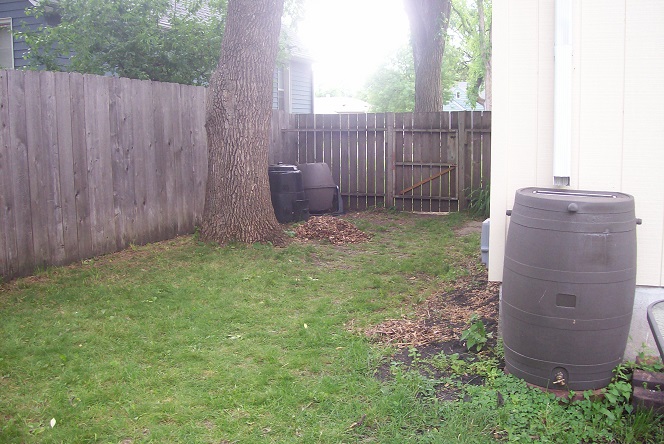 According to the City of New York’s Department of Sanitation (DSNY), “organic waste, such as food waste, food-soiled paper and yard waste, makes up 31 percent of New York City’s residential and institutional waste stream.” To combat this waste steam, the DSNY has initiated a number of programs to keep these materials from ending up in local landfills and instead make it into compost.
The problem with organic waste is that when these materials are sent to a landfill, they contribute not only to the city’s disposal costs, but they also emit greenhouse gases. However, when these materials are composted, food scraps and other organic waste become a useful product that can be used to add nutrients back to the soil, improving its quality for street trees, gardens and more.
If you live in New York City, there are a myriad of ways for you to reduce your waste by recycling and composting. To facilitate composting, the NYC Compost Project helps by giving residents the knowledge, skills and opportunities they need to produce and use compost.
According to the City of New York’s Department of Sanitation (DSNY), “organic waste, such as food waste, food-soiled paper and yard waste, makes up 31 percent of New York City’s residential and institutional waste stream.” To combat this waste steam, the DSNY has initiated a number of programs to keep these materials from ending up in local landfills and instead make it into compost.
The problem with organic waste is that when these materials are sent to a landfill, they contribute not only to the city’s disposal costs, but they also emit greenhouse gases. However, when these materials are composted, food scraps and other organic waste become a useful product that can be used to add nutrients back to the soil, improving its quality for street trees, gardens and more.
If you live in New York City, there are a myriad of ways for you to reduce your waste by recycling and composting. To facilitate composting, the NYC Compost Project helps by giving residents the knowledge, skills and opportunities they need to produce and use compost.
NYC Compost Project
1. The NYC Compost Project has workshops and courses for New Yorkers of all ages, from novices to experienced composters. There are workshops, a Master Composter Certificate Program, educational composting materials and more.2. You can take food waste for composting to drop-off sites located throughout the five boroughs.
To find a convenient drop-off site, click here.
Here is a list of items that are accepted at the drop-off site:
- Fruit and vegetable scraps
- Coffee grounds, filters and paper tea bags
- Bread and grains
- Egg shells
- Nutshells
- Corncobs
- Food-soiled paper towels and napkins
- Shredded newspaper
- Sawdust and wood shavings from untreated wood
- Stale beans, flour and spices
- Cut or dried flowers
- Houseplants and potting soil
- Feathers
Here is a list of items that are NOT accepted at the drop-off site:
- Meat or fish scraps
- Cheese or dairy products
- Fats, grease, oil or oily foods
- Cat or dog feces
- Kitty litter
- Colored or glossy paper
- Sawdust made from pressure-treated plywood or lumber
- Coal or charcoal ashes
- Non-compostable materials like plastic, metals or glass
- Diseased or insect-infested houseplants and soil
- Biodegradable or compostable plastics
To help NYC residents if they would like to produce and utilize their own compost, residents can purchase low-cost backyard compost bins and worm compost bins at reduced prices.
For more information about the NYC Compost Project, visit http://www1.nyc.gov/site/dsny/wp-content/uploads/initiatives/nyc-compost-project.page.
NYC Organics Collection Pilot Program
The DSNY has also been conducting the NYC Organics Collection pilot program. The program was established after Local Law 77 was enacted in 2013, requiring the city set up a voluntary residential organic waste curbside collection program and a school organic waste collection program.1. The time period for the pilot program was October 1, 2013, to July 1, 2015, but the DSNY has plans to implement the program citywide. The department will continue the collection service beyond July as it prepares the final evaluation and report, which it plans to release October 2015.
2. The organic waste collected includes food scraps, soiled paper and yard waste.
3. The program serves more than 100,000 households in all five boroughs and was recently expanded to add approximately 35,000 new households.
4. The program currently provides collection service to 772 public schools (including 28 charter schools in Department of Education buildings) and 69 private schools, along with some additional agencies and institutions.
To find out more about the NYC Organics Collection pilot program, visit http://www1.nyc.gov/site/dsny/wp-content/uploads/initiatives/nyc-organics-collection.page.